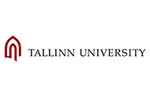We're moving! This site will be relocating to goingto.university in 2026. Please update your bookmarks to the new address.


| The award | How you will study | Study duration | Course start | Domestic course fees | International course fees |
|---|---|---|---|---|---|
| MA | Full-time | 2 years | September | EUR 1350 per semester | EUR 1350 per semester |
Are you interested in international security and the changing world order? Then International Relations at Tallinn University is for you! Our programme is provides flexibility to ensure that students are able to make the most of their education. It is a great opportunity to learn from some of the top IR scholars in the field and to experience it in an international environment. Best of all you’ll be able to gain valuable knowledge and improve your analytical skills in International Relations at Tallinn University. The programme unites traditions of Anglo-American and continental European IR scholarship and education in reflecting the changing international system and the security threats that are emerging.
At Tallinn University you have a unique opportunity to study contemporary security threats and the changing world order. These topics are critical for aspiring policymakers and researchers and Tallinn University is one of the few universities in the Nordic-Baltic region to emphasize them. The academic staff is producing innovative research on the same topics including cyber deterrence and small state alliance tendencies and have been published in top ranking journals such as International Security and authored books published by Palgrave Macmillan, Routledge, and Ashgate.
The International Relations master's programme is cycle studies. Classes will be held Monday-Friday at night from 17:00-20:00. Many students will take advantage of this structure to also take advantage of internship, volunteer, and employment opportunities that arise. There may be some seminars and elective courses during the day, though they will not be frequent.
The IR curricula allows for specialisation in one of two modules: "Globalisation and Regional Cooperation" or "International Security and Conflict Studies". In addition there is an elective section that enables a wide choice of courses so students can tailor their studies to their research interests.
Courses in the programme will enable the students to become better researchers. Courses such as „Academic Writing and Research Design" and „Qualitative Research Methods" will provide the skills needed to complete a successful master's thesis and to have the needed skills after graduation. Other courses will provide the conceptual and theoretical foundation to thrive in the IR discipline. Some examples being „World Politics and Global Governance", „Formation of global norms and international regimes", „Conflict Analysis: Approaches and Cases", and „Small states in the changing world order".
Cost: € 1350 per semester.
Scholarship for one student from Georgia or Ukraine will be granted for two years by the Development Cooperation and Humanitarian Aid of the Ministry of Foreign Affairs of the Republic of Estonia.
General requirements:
Applications are accepted from 9 January, 2017 until the following deadlines:
NB! All required documents have to have arrived by the given deadlines by post to Tallinn University. The documents by post will be requested from the applicant in case they receive positive feedback in the first stage of the application procedure.
Students graduating from upper secondary schools or universities in Spring 2017 who are not able to submit their educational certificates by the requested deadline are asked to contact the International Admission Specialists.
Below are some suggested courses at other providers that you may also be interested in:
The Psychology of Creativity – Short Course, Summer School Summer School
Catalyst - Institute for Creative Arts and Technology
Find out moreCoastal Communities and Regional Development Master Degree
University Centre of the Westfjords
Find out moreAdvanced Bachelor of Bioinformatics Advanced Diploma, Bachelor Degree
Howest University of Applied Sciences
Find out moreIf you do not meet the entry requirements for this course then consider one of these postgraduate preparation courses from another institution:
Graduate Diploma of Engineering (Civil: Structural)
Engineering Institute of Technology
Find out moreGlobal Master of Engineering in Logistics and Supply Chain Management (GSCM)
Zaragoza Logistics Center (ZLC)
Find out moreThere are 14 other courses listed from Tallinn University. A selection of these are displayed below:
Join the StudyLink email list and never miss a chance to turn your study abroad dreams into reality!
